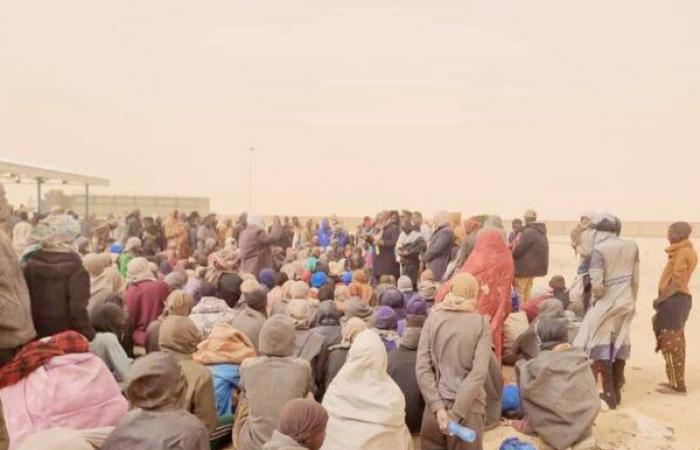Agadez, January 6, 2025 – On the night of January 3 to 4, 2025, around 613 Nigerien migrants, repatriated from Libya, set foot on Dirkou, a village located in the Bilma department, in the Agadez region, in the north of Niger. Indeed, the Libyan authorities pushed back these migrants, who were previously in an irregular situation in Libya, forcing them to return to their country of origin after having experienced precarious and often dangerous on Libyan territory.
Humanitarian solidarity in Dirkou: local authorities take care of migrants
Upon their arrival in Dirkou, the local municipal authorities immediately took care of the migrants, in close collaboration with the Defense and Security Forces (FDS) and various local humanitarian partners. This repatriation operation is part of a humanitarian and solidarity framework aimed at offering emergency aid to these migrants. For some, they had been caught in the trap of human trafficking networks or had suffered serious abuse in Libya.
The mayor of Dirkou, as well as representatives of the FDS and local humanitarian organizations, expressed their solidarity and support for the migrants, providing them with food, water and essential health care. In addition, the authorities announced measures to ensure their safety and well-being, while preparing solutions for their social and economic reintegration into their communities of origin.
Returned migrants receive emergency assistance and basic care.
The Nigerien authorities recalled the importance of continuing to work to improve living conditions and economic opportunities in the regions most affected by migratory flows, in order to reduce the risks that Nigerien citizens find themselves again in dangerous situations abroad.
This operation follows a series of initiatives taken by Niger, in cooperation with other countries in the region and international organizations, to combat the root causes of irregular migration and human trafficking, by providing safe alternatives and legal rights to migrants.
In short, the phenomenon of migration from sub-Saharan Africa, particularly towards Libya and Europe, remains a major challenge for governments in the region. The repatriation of the 613 migrants is an example of the solidarity that exists between the different stakeholders, but also of the need to strengthen measures to protect human rights to prevent such tragedies from happening again.






